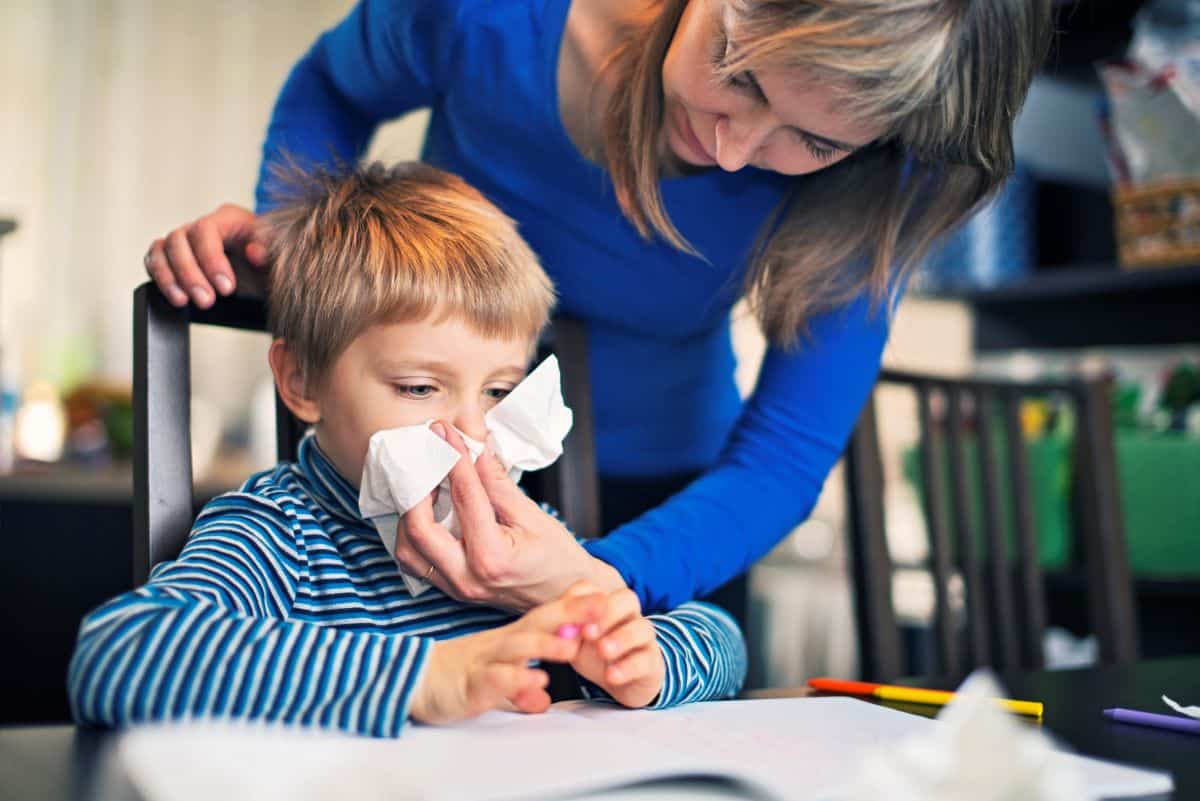
If your child is exhibiting symptoms of allergies like sneezing, congestion and wheezing, it’s natural to feel concerned. Our otolaryngologists at Spartanburg-Greer ENT & Allergy are here to help you find the best treatment plan for your child’s needs so they can focus on their favorite activities without being slowed down by uncomfortable symptoms.
What Are Pediatric Allergies?
Allergies are the result of the immune system responding to a perceived threat by flooding the bloodstream with histamines to attack the substance in question. However, this also causes cause inflammation and swelling of the airways.
Common allergy triggers include:
- Pollen
- Mold
- Animal dander
- Dust mites
- Chemicals
- Medications
- Certain foods
Does My Child Have Allergies?
Symptoms of pediatric allergies include:
- Runny nose
- Congestion
- Sneezing
- Coughing
- Sore throat
- Wheezing
- Headaches
- Snoring
- Itchy and watery eyes or nose
- Rashes or hives
- Upset stomach
How Are Allergies Diagnosed in Children?
Our ENT will get to know your child and ask about the symptoms they’re experiencing and how they are impacting their day-to-day life.
Along with a physical exam, diagnostic tests for allergies include a skin tests, which determines if the body has antibodies to certain allergens; blood tests, which measures the presence of allergens in blood; and challenge tests, which shows the severity of the body’s allergic response to an allergen.
Prior to administering any tests, our provider will make sure your child feels safe during the process and answer any questions that may arise.
What Treatments Are Available?
Our team customizes treatment for every patient based on factors like age, lifestyle and severity of symptoms. Treatment typically includes avoiding triggers, medication and immunotherapy.
Common lifestyle recommendations that can help your child avoid allergens include managing dust and pet dander in your home, showering and changing clothes after playing outdoors during days with high pollen counts, utilizing a dehumidifier and using air conditioning rather than opening windows when possible.
Medications your child’s doctor may prescribe include:
- Antihistamines
- Decongestants
- Nasal corticosteroid sprays
- Eye drops
If your child’s symptoms do not respond to medication, our ENT may recommend immunotherapy, which allows the body to build up a tolerance to specific allergens over time. Immunotherapy can be achieved through allergy shots or sublingual immunotherapy, which is taken orally.
Our team at Spartanburg-Greer ENT & Allergy is dedicated to helping your child manage their allergies. Whether they’re just now exhibiting symptoms or are experiencing new ones after a previous diagnosis, we’re here for your family.
Call Spartanburg-Greer ENT & Allergy for more information or to schedule an appointment.